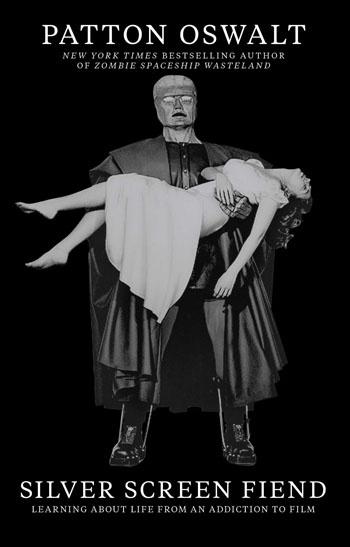Miranda July‘s debut novel, The First Bad Man, has been garnering some pretty solid reviews. For Josh Modell at the AV Club, “it seems odd that she hadn’t released a novel until now—though she’s been plenty busy making films (Me and You and Everyone We Know, The Future), writing short stories (collected in the excellent No One Belongs Here More Than You), and doing various unclassifiable projects (an email chain letter, an app). She’s the type of artist—word used with confidence and sincerity—who tends to be dismissed (or worse, backhandedly complimented) as ‘quirky,’ but whose work is tied together by her singular, confident, multifaceted voice. Her characters are often unusual and under-confident; her writing is always the former and never the latter.”
In the New York Times, Michiko Kakutani finds The First Bad Man to be “like one of those strange mythological creatures that are part one thing, part another—a griffin or a chimera, perhaps, or a sphinx. The novel starts off tentatively, veers into derivative and willfully sensational theater-of-the-absurd drama—part Pinter, part Genet—and then mutates, miraculously, into an immensely moving portrait of motherhood and what it means to take care of a child.”
Also in the NYT: The site for the novel is “as much an art project as a marketing stunt,” suggests Alexandra Alter. And July answers the “By the Book” questionnaire.
“Within the context of July’s work, The First Bad Man feels, if not exactly regressive, than not quite a giant leap forward,” finds Karina Longworth at Slate. “And yet within the context of the wider world—in which all speech is policed, but especially women’s stories about their uniquely feminine personal experiences—The First Bad Man feels visionary.”
For the Los Angeles Times, Margaret Wappler profiles July, who’ll be at Skylight Books on Thursday evening.
Richard Maxwell’s book now exists. Everyone in film/art/theater/life must have: http://t.co/gj7El9gvu1 pic.twitter.com/xXPmZUpu71
— Miranda July (@Miranda_July) January 11, 2015
“Nicholas Rombes’s haunting debut novel, The Absolution of Roberto Acestes Laing, is about a secret history of film,” writes Kevin Allardice for the Los Angeles Review of Books: “films of destruction, films that destroy their own borders, films that are then destroyed. An unnamed narrator, a journalist on assignment, travels to a run-down Wisconsin motel to interview Roberto Acestes Laing, a film librarian who gained notoriety in the 1990s when he ritualistically burned single-print films ‘from the likes of David Lynch, Michelangelo Antonioni,’ Maya Deren, and Alejandro Jodorowsky…. These films, with an evolving sense of the apocalyptic, articulate a doom that resonates with each man’s sense of loss.”
For Film Quarterly, Regina Longo talks with Eric Smoodin and Jon Lewis, editors of The American Film History Reader: “What emerges in this carefully curated collection is a sense of the microhistories of American cinema that have been written over the past forty years.” And you can read the introduction (PDF). Also in the new issue of FQ, introduced by editor B. Ruby Rich: Claudia Gorbman on Philip Seymour Hoffman’s voice in Paul Thomas Anderson’s The Master.
Vince Keenan recommends “It’s the Pictures That Got Small”: Charles Brackett on Billy Wilder and Hollywood’s Golden Age: “This view from deep inside the studio system at its height is one of the best books ever about Hollywood, as well one of the finest on writing in years.”
Jonathan Rosenbaum‘s posted his 2001 review of Joseph McBride’s Searching for John Ford, “not only critical biography of the first order, but an invaluable guidebook to the mystery and fascination of John Ford.”
For the Guardian, David Shariatmadari reviews Jeffrey Zacks’s Flicker: Your Brain on Movies, which “covers a lot of ground, from the politics of propaganda to the physiology of the eye. At times it feels like a bit of a ragbag—or more kindly, a box of delights. But this is only because films themselves impinge on so many of our sensory and cognitive systems.”
Sophia Nguyen in Bright Lights: “Innocence on the Open Market: Cormac McCarthy, The Counselor, and Artistic Agency.”
“At a slender 128 pages, World Film Locations: Toronto is not an in-depth critical study of the city in cinema,” writes Carmen Siu for Film International. “Nor is it an exhaustive directory of every film ever shot in or made about Toronto. Rather, the book functions as a collage of meaningful Toronto film moments, put together by many hands.”
In last week’s entry on books, we gathered a first round of reviews of Patton Oswalt’s memoir, Silver Screen Fiend: Learning About Life from an Addiction to Film. Fresh interviews with Oswalt: Carolyn Kellogg (Los Angeles Times), Donald Liebenson (RogerEbert.com) and Janet Potter (Chicago Reader).
And finally for now, Bruce Weber in the New York Times. “Robert Stone, who wrote ambitious, award-winning novels about errant Americans in dangerous circumstances or on existential quests—or both—as commentary on an unruly, wayward nation in the Vietnam era and beyond, died on Saturday at his home in Key West, Fla. He was 77.” Who’ll Stop the Rain (1978) was based on his novel Dog Soldiers and Stone himself adapted his own novel A Hall of Mirrors for WUSA (1970) starring Paul Newman, Joanne Woodward and Anthony Perkins. Weber: “His experiences in the moviemaking world were the catalyst for his Hollywood novel, the grim, sardonic sendup Children of Light (1986).”
For news and tips throughout the day every day, follow @KeyframeDaily. Get Keyframe Daily in your inbox by signing in at fandor.com/daily.





